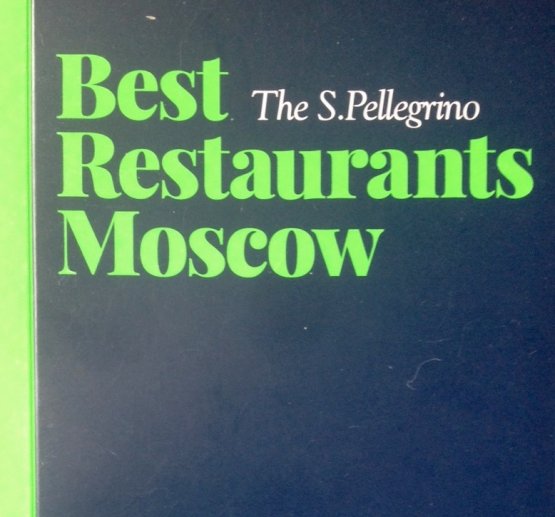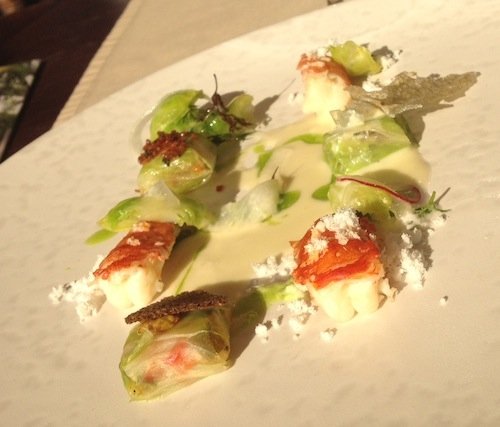see part one
Mother Russia’s most famous son in the kitchen is called Anatoly Komm. We recall his memorable Maki roll: rice with chicken breast and vegetables closed not in the classic Japanese nori seaweed but in a chard leaf. Next to it, instead of the soy glass, there was satsivi nut sauce (here’s the recipe). Nobody, however, is a prophet in his own country and so his revolutionary Varvary is now downsized: it will open again in the same location under the name Four Seasons with a lower creativity level. How about Varvary’s creative fervour? It will burn two months per year instead of 12.
As for all the other chefs champing at the bit, we have to ask Igor Gubernski, one of Moscow’s biggest experts: a pioneer and talent scout, he’s constantly hunting for a young chef who could become what Redzepi or Atala have represented for Danish or Brazilian cuisine. He does so through publications (for Cyrillic readers, the Best Restaurant Moscow guide is not to be missed) and a series of important events, from the Moscow Gastronomic Festival in October – which every year attracts important Italian chefs, from Scabin to Bottura – to Taste of Moscow (in November, but indoors, given the season) up to the young chef of the year contest which took place a few days ago, and for which Identità was called to be part of an almost exclusively Italian jury.

The best guide to Moscow’s restaurants, editor Igor Gubernsky
A few notes on the amazing stories of the other jurors:
Nino Graziano, was the first person to receive two Michelin stars in Sicily, with
Mulinazzo, which he left in 2005 to open
Semifreddo, the most esteemed Italian restaurant in Moscow, and other 21 establishments he controls indirectly. There was
Uilliam Lamberti, already with
Marchesi at
Nahm in London, in Russia since 1997 and today with 3 restaurants:
Uilliam’s,
Honest and
Ugolëk, the latter of which only serves food cooked on American late 19th Century stoves. And there was
Mirko Zago, from Valle d’Aosta, at the helm of
Syr, one of the most popular Italian restaurants in the capital, as well as a strict juror in the Russian edition of Masterchef.
For the record, the contest was won by young Sergey Berezutskiy, about to open his restaurant in Moscow, something which is still top secret, and already invited to represent Russia on board of the next S.Pellegrino Cooking Cup, in Venice, in June. He won over two competitors with as many dishes: Salad with prawns from river Don served with stewed cabbage and horseradish sauce and Shoulder of lamb from Dagestan with pomegranate sauce, onions and popcorn. Two dishes that finely illustrate the paradox of a territory that well deserves to be explored: Russia is the largest country on earth – Moscow and Vladivostok, in front of Japan, are separated by over 9,000 kilometres – but outside the capital it is impossible to even think of eating “well” (in a Western style, that is).

Salad with prawns from river Don served with stewed cabbage and horseradish sauce by Sergey Berezutskiy, Young russian chef of the year 2014
In any case, the contest between young chefs from Moscow has brought two trends to the attention of the jury: for these guys, “the more, the better” is a principle that works much better than “the less is more” to which we are used to in the Mediterranean area. That is to say, when in doubt, it’s better to add than to take away, in the style of Marchesi. Besides there is a common habit, with a clear Asian influence, of mixing sweet and sour, a custom that is not particularly appreciated by Westerners. However, the latter, when arriving in Moscow, need to move the clock at least three hours forward and the same goes for their usual palate-parameters.
2. to be continued